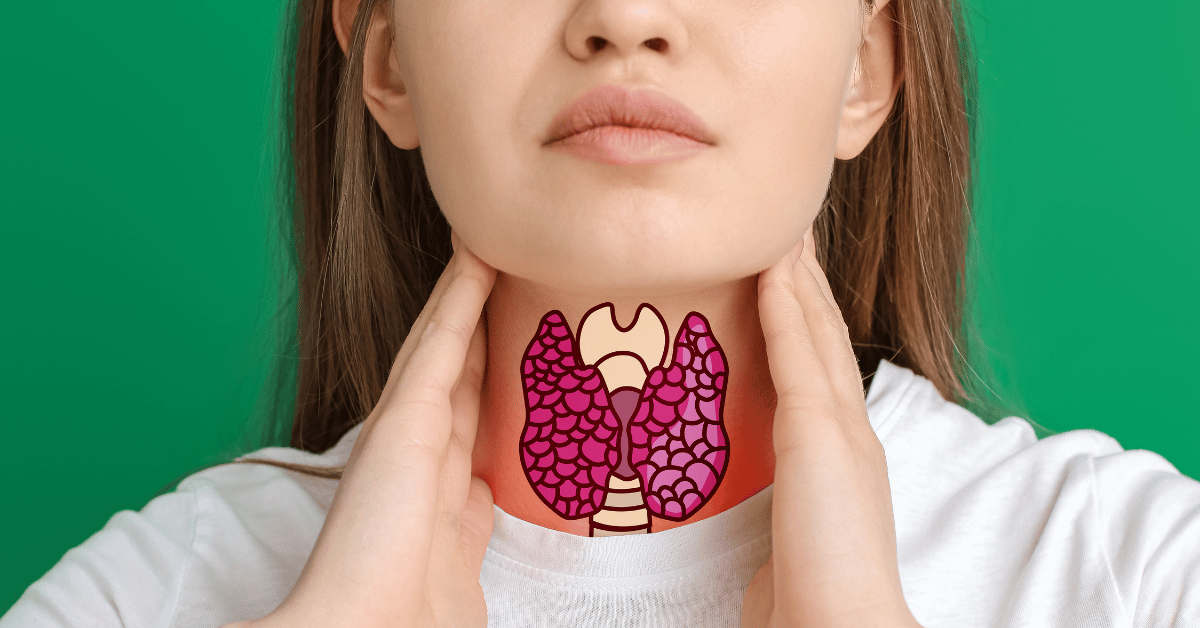Thyroid disorders are increasingly common, especially among adults aged 30 to 50. Whether it’s hypothyroidism (underactive thyroid) or hyperthyroidism (overactive thyroid), recognizing early symptoms and making dietary changes can play a crucial role in managing the condition naturally.
🔍 What Is the Thyroid and Why It Matters
The thyroid is a small butterfly-shaped gland located in the neck. It produces hormones that regulate your metabolism, energy, body temperature, and mood. Imbalances in thyroid hormones can lead to various health issues if left untreated.
⚠️ Early Signs of Thyroid Problems
Common signs of Hypothyroidism (Underactive Thyroid):
- Unexplained weight gain
- Fatigue or sluggishness
- Constipation
- Dry skin and hair thinning
- Depression or low mood
- Sensitivity to cold
- Menstrual irregularities
Common signs of Hyperthyroidism (Overactive Thyroid):
- Sudden weight loss
- Rapid heartbeat or palpitations
- Increased appetite
- Nervousness or anxiety
- Sweating and heat intolerance
- Tremors in hands or fingers
- Trouble sleeping
If you notice any of these symptoms, consult a healthcare provider and request a thyroid function test (TSH, T3, T4 levels).
🥗 Best Diet Tips for Thyroid Health
1. Eat Iodine-Rich Foods
Iodine is essential for thyroid hormone production. Good sources include:
- Iodized salt
- Seaweed
- Dairy products
- Eggs
2. Add Selenium-Rich Foods
Selenium helps activate thyroid hormones and protect the gland from damage. Eat:
- Brazil nuts (1–2 per day)
- Sunflower seeds
- Tuna, sardines
- Eggs
3. Include Zinc Sources
Zinc supports thyroid hormone production. Include:
- Pumpkin seeds
- Chickpeas
- Lentils
- Cashews
4. Opt for Anti-Inflammatory Foods
A thyroid-friendly diet should reduce inflammation. Eat:
- Turmeric
- Ginger
- Leafy greens
- Berries
- Fatty fish (like salmon or mackerel)
5. Go for Whole Foods
Focus on a diet rich in:
- Whole grains (like oats, quinoa)
- Fresh vegetables
- Low-sugar fruits (apples, berries)

🚫 Foods to Avoid or Limit
1. Excess Soy Products
May interfere with thyroid hormone absorption if consumed in large quantities, especially in those with iodine deficiency.
2. Cruciferous Vegetables (in raw form)
Broccoli, cabbage, and cauliflower can impact thyroid function when eaten raw in excess. Cooking them reduces this effect.
3. Highly Processed Foods
Packed with sodium and additives that can worsen thyroid symptoms.
4. Gluten (if sensitive or with Hashimoto’s)
Some people with autoimmune thyroid disease (like Hashimoto’s) may benefit from a gluten-free diet.
5. Sugary Foods and Drinks
Can lead to insulin resistance, which often coexists with thyroid imbalances.
✅ Lifestyle Tips
- Exercise regularly: Boosts metabolism and improves mood
- Get enough sleep: Aim for 7–8 hours a night
- Reduce stress: Chronic stress affects hormone balance
- Check vitamin D & B12 levels: Often low in people with thyroid issues
Final Thoughts
Early detection of thyroid problems can prevent complications and improve quality of life. A balanced, thyroid-supportive diet and smart lifestyle choices can work alongside medical treatment to help regulate hormone levels naturally.
If you’re in your 30s, 40s, or 50s and experiencing any symptoms, don’t ignore them—your thyroid could be trying to tell you something.
also read this:
Heart Attack Signs in Women: How They Differ from Men
Diabetes Control Without Medicine: Real Food and Lifestyle Tips
Ayurveda vs Modern Medicine: Which is Better for Long-Term Health?



